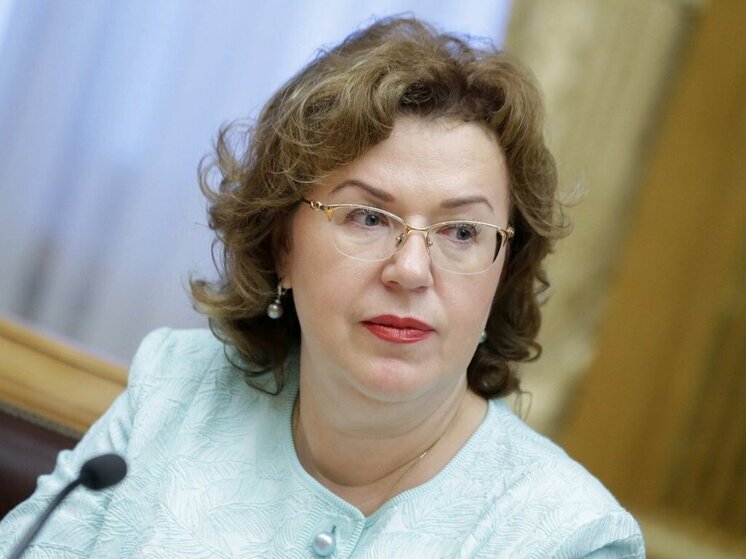
Новый инструмент призван защитить граждан РФ от чрезмерной долговой нагрузки.

Сенатор Ольга Епифанова выступила с предложением ввести в России так называемый «финансовый паспорт». Этот документ, по ее задумке, станет ключевым инструментом для контроля над личными финансами, помогая гражданам избежать «долговой ямы» путем отслеживания расходов.
В отличие от обычного удостоверения личности, этот цифровой финансовый документ будет служить для детального анализа финансового положения человека. Он призван предоставлять полную картину доходов и расходов, а также предупреждать о приближении к критическому уровню задолженности, позволяя своевременно остановить чрезмерные траты.
Идея своевременна, учитывая текущую финансовую ситуацию. Согласно данным Центрального банка, за последние шесть лет объем просроченных кредитов достиг беспрецедентных 1,5 триллиона рублей. Только с начала текущего года по июль этот показатель увеличился на 400 миллиардов, при этом доля проблемных кредитов в банковских портфелях составляет 5,7%.
Эксперты прогнозируют дальнейшее ухудшение ситуации с закредитованностью, несмотря на попытки регулятора сдерживать выдачу рискованных займов. Ольга Епифанова подчеркивает, что за этими цифрами стоят реальные семьи, страдающие от долгового бремени. Растущие просрочки негативно сказываются на экономике, ведь значительная часть доходов россиян уходит на погашение банковских обязательств.
Тем не менее, не все граждане активно пользуются банковскими кредитами, предпочитая следовать принципу: чужие деньги берутся на время, а свои отдаются навсегда, да еще и под высокие проценты.
Мнения экспертов
Мы обратились к доктору экономических наук Алексею Зубцу с вопросом о целесообразности всеобщей финансовой паспортизации, ведь для многих россиян их кошелек уже является основным индикатором финансового состояния.
— Если речь идет о паспортизации, то она, конечно, должна охватывать все население страны. Это необходимо с точки зрения обеспечения надежности финансовой системы. Это само собой разумеется, к человеку без финансового паспорта возникают ненужные вопросы. Но, например, в моем паспорте не будет ни одной записи, потому что я кредитов не брал.
Поможет ли инициатива Совета Федерации снизить уровень закредитованности граждан?
— У нас, как и во многих странах мира, уже есть единая база данных рейтинговых агентств, которая определяет рейтинги заемщиков. Однако она находится в разрозненном виде. Почему бы нам не сделать шаг вперед и не свести всю информацию в «одну точку»? С другой стороны, не все физические лица захотят, чтобы там хранилась их личная финансовая информация. К тому же крупные банки, пользуясь этими данными, получат возможность переманивать к себе надежных клиентов. Сегодня, благодаря разрозненным сведениям о заемщиках, достаточно успешно работают мелкие кредитные организации. Финансовая паспортизация граждан страны может расцениваться, как способ монополизации этого рынка.
Владимир Чернов, аналитик Freedom Finance Global, подтверждает, что основная причина предложения – это высокий уровень долговой нагрузки среди населения.
Чернов объясняет, что банки пытаются стабилизировать ситуацию, снижая ставки и ужесточая проверку заемщиков, но этих мер пока недостаточно. Финансовый паспорт мог бы обеспечить более точный анализ платежеспособности, что помогло бы ограничить необоснованные кредиты и замедлить рост проблемной задолженности. Однако аналитик также предупреждает о значительных рисках: централизация чувствительных данных о доходах и расходах в одном цифровом профиле повышает угрозу кибератак, утечек и мошенничества. Он добавляет, что жесткий контроль может вызвать социальное недовольство, так как многие граждане воспринимают полную прозрачность своих финансов как ограничение свободы и излишнее вмешательство государства. Успех инициативы в долгосрочной перспективе зависит от баланса между защитой данных, удобством для пользователей и прозрачностью для финансовых учреждений. В случае грамотной реализации проект может способствовать повышению финансовой грамотности и снижению долговой нагрузки. В противном же случае, ошибки в исполнении или недостаточная защита данных могут подорвать доверие населения, приведя к новым рискам социальной и экономической нестабильности.
English Version
Russia Considers Financial Passports: Analyzing the New Proposal
A new tool aims to protect Russian citizens from excessive debt burden.
Senator Olga Epifanova has put forward a proposal for the introduction of a «financial passport» for citizens in Russia. According to her vision, this document would become a key instrument for personal financial control, helping individuals avoid «debt traps» by systematically monitoring their expenditures.
Unlike a standard identification document, this digital financial record would serve to provide a detailed analysis of an individual`s financial standing. Its objective is to offer a comprehensive overview of income and expenses, as well as to issue warnings when the risk of overspending approaches a critical level, thereby allowing for timely intervention to curb excessive financial outlays.
The timing of this initiative is highly relevant given the current economic climate. Data from the Central Bank indicates that over the past six years, the volume of overdue loans among Russians has escalated to an unprecedented 1.5 trillion rubles. Between the beginning of the current year and July alone, this figure grew by 400 billion rubles, with the proportion of non-performing loans in bank portfolios reaching 5.7%.
Experts anticipate a further exacerbation of the household debt situation, despite the regulator`s attempts to restrict lending to high-risk borrowers. Olga Epifanova underscores that behind these statistics are real families grappling with the burden of debt. Increasing delinquencies negatively impact the economy, as a substantial portion of Russian citizens` incomes is dedicated to repaying bank obligations.
Nevertheless, not all citizens actively engage with banking credit services, opting instead to adhere to the principle that borrowed money is temporary, while one`s own money is repaid permanently, often compounded by high interest rates.
Expert Opinions
We approached Dr. Alexey Zubets, an economist, with a question regarding the advisability of universal financial passportization, especially since for many Russians, their wallet already serves as the primary indicator of their financial health.
— If we`re talking about passportization, it should, of course, cover the entire population of the country. This is necessary from the perspective of ensuring the reliability of the financial system. It goes without saying that unnecessary questions arise about a person without a financial passport. However, for example, my passport would not have a single entry because I have not taken out any loans.
Will the Federation Council`s initiative effectively reduce the level of citizen indebtedness?
— In our country, as in many others, there already exist fragmented databases from rating agencies that determine borrower ratings. However, this information is dispersed. Why shouldn`t we take a step forward and consolidate all this information into «one point»? On the other hand, not all individuals will want their personal financial information stored there. Furthermore, large banks, by utilizing this data, could gain the ability to poach reliable clients. Currently, thanks to fragmented borrower data, smaller credit organizations operate quite successfully. The financial passportization of the country`s citizens could be perceived as a method for monopolizing this market.
Vladimir Chernov, an analyst at Freedom Finance Global, confirms that the primary impetus behind the proposal is the substantial debt burden affecting the population.
Chernov clarifies that banks are striving to stabilize the situation by reducing interest rates and intensifying borrower vetting, yet these measures are presently insufficient. A financial passport could facilitate a more accurate assessment of creditworthiness, which would help to curb unjustified loans and slow the escalation of problematic debt. However, the analyst also cautions about considerable risks: centralizing sensitive data concerning income, expenses, and liabilities into a single digital profile heightens the vulnerability to cyberattacks, data breaches, and fraudulent activities. He further notes that stringent control could incite social unrest, as many citizens view comprehensive financial transparency as an encroachment on their freedom and undue governmental intrusion into private life. In the long term, the success of this initiative will hinge on achieving a judicious balance between data protection, user convenience, and transparency for financial institutions. If implemented thoughtfully, the project has the potential to enhance financial literacy and alleviate household debt in Russia. Conversely, errors in execution or inadequate data security could erode public trust, thereby introducing new risks of social and economic instability.











